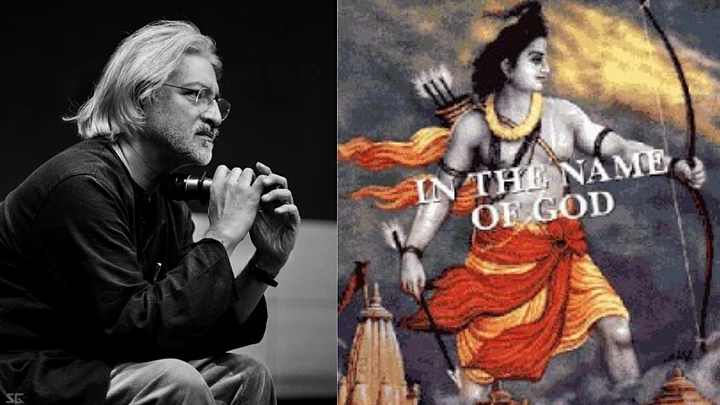The JNU Students' Union announced their decision to go ahead with the screening of Anand Patwardhan's documentary — Ram Ke Naam on Sunday 4 December, at 9:30 pm, despite the university administration objecting to it.
Earlier in the day, the Jawaharlal Nehru University had published a circular claiming that prior permission was not sought by the group of students for the film screening.
Raising objections against the event, the circular read, "This is to emphasise that such an unauthorised activity may disturb communal harmony and peaceful environment of the university campus. The University stated that disciplinary action will be initiated against those responsible for the event. The students are also instructed not to get provoked by the pamphlet, which is unauthorised and unwarranted," read the circular.
JNU further stated that the concerned students are strictly advised to cancel the proposed programme immediately failing which strict disciplinary action as per the University rules may be initiated against those responsible for this event.
Nothing in the Film to Disturb Communal Harmony: JNUSU
Responding to the JNU admin's circular, JNUSU President Aishe Ghosh confirmed that they would be going ahead with the screening.
"The RSS and its stooges shouldn't talk about communal harmony. The JNUSU will go ahead with the screening of 'Ram Ke Naam'. Communal harmony is being disturbed in this country by the right wing fundamentalists and they will be exposed every time they try to threaten us," Ghosh wrote on Twitter.
Satish Chandra Yadav, JNUSU General Secretary, said that they are expecting approximately 100 students for the screening.
"The documentary was released in 1991 and looks at the Babri Masjid incident from a historical perspective. The film is accessible on YouTube. It is our fundamental right to watch a documentary that is in the public domain. There is nothing in the file that might disturb communal harmony."Satish Chandra Yadav, JNUSU General Secretary
A statement shared by JNUSU on the matter said, "It is ironic that the pretext of this request by the JNU Administration has been that the screening may disturb the peace and communal harmony of the campus."
"The film in question has been awarded the National Award for Documentary Filmmaking and aired on national television for its advocacy of secularism and exposure of communalism. Thus to say that it shall incite communalism points to the flawed and communal mindset of the JNU Administration itself. Further, the JNUSU Office falls under the jurisdiction of the JNUSU and thus the JNU Administration’s claims of the event being ‘unauthorised and unwarranted’ are baseless and without legitimacy," the statement read.
Film Screening Can Only Be Stopped When We Are Fully Under Fascism: Anand Patwardhan
Lauding the students' decision, filmmaker Anand Patwardhan said that the students have every right to screen the film.
"I want to tell you that you have every right to screen the film. In fact, it has received a U certificate from the CBFC. It also received a National Award for Best Investigative Documentary in 1999. After that, this film was broadcasted in Doordarshan as well because the High Court had ordered for it to be shown during the prime time as in at 9 pm."Anand Patwardhan, Filmmaker
"What I mean to say is that the entire country has watched this film. The new generation may not have seen it but the screening can't be stopped. It can only be stopped when we are fully under a fascist rule, which is not the case yet," he said.
'Ram ke Naam' is a 1992 documentary by filmmaker Anand Patwardhan that explores the campaign waged by the Hindu right-wing organisation Vishwa Hindu Parishad to build a Ram temple at the site of the Babri Masjid in Ayodhya. The film won several accolades including Filmfare Award for Best Documentary, National Film Award in 1992, Best Investigative Documentary, Fribourg International Film Festival, Switzerland, Yamagata International Documentary Film Festival, Japan.
